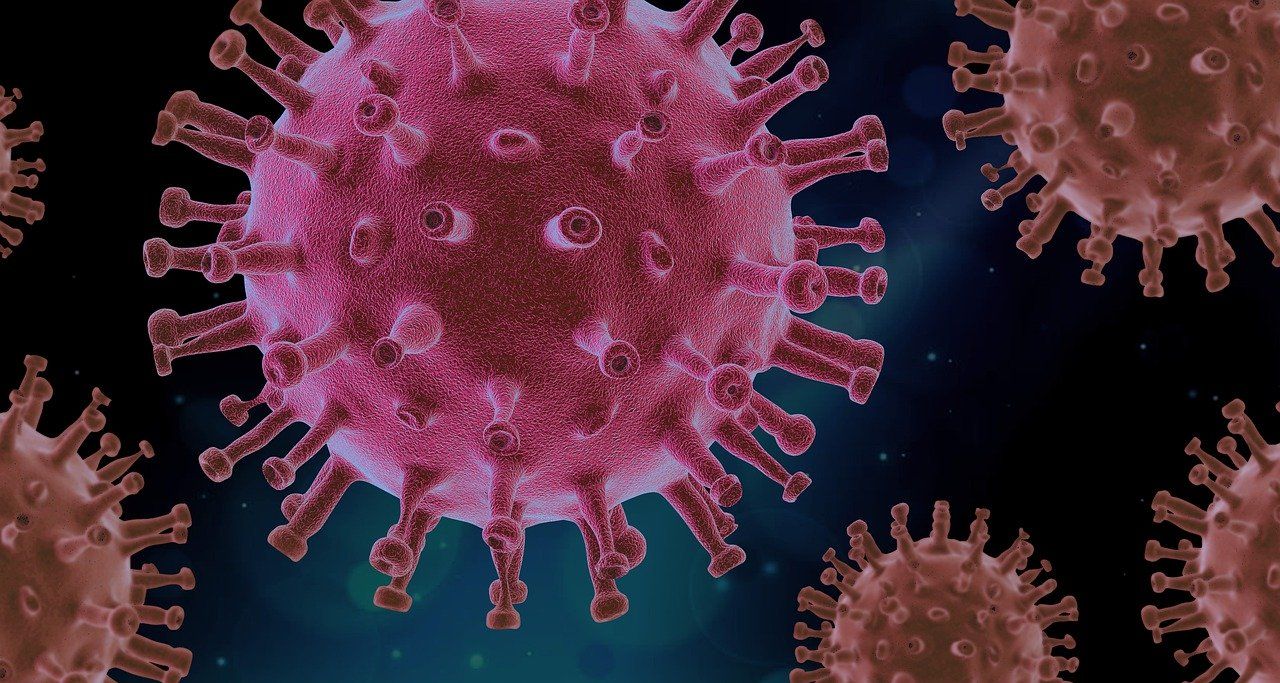Acalabrutinib Shows Potential as Therapeutic Strategy for Severe COVID-19
"I am encouraged by these initial results but further research is necessary to better understand the role of acalabrutinib in treating COVID-19."

Treatment with acalabrutinib (Calquence), a Bruton’s tyrosine kinase (BTK) inhibitor that is traditionally used to treat hematologic malignancies, led to decreased inflammation and improved overall outcomes in patients with severe coronavirus disease 2019 (COVID-19). These findings came from a 19-patient case series published recently in the journal Science Immunology.1-3
“When COVID-19 infects the respiratory pathway, the body creates a hyperactive immune response to ward off this novel virus for which it has no prior immunity. This robust response produces excessive inflammation that causes more damage than the virus itself, leading to acute respiratory distress syndrome,” said co-author Jeff Sharman, MD, medical director of hematology research for The US Oncology Network, in a statement.2 “As the lead investigator in the clinical trial which led to the approval of acalabrutinib for people with chronic lymphocytic leukemia [CLL], I have seen the drug’s ability to modify key immunologic signaling pathways shared by both cancer and the virus. I am encouraged by these initial results, but further research is necessary to better understand the role of acalabrutinib in treating COVID-19.”
Patients in the study were treated from March 20, 2020, to April 10, 2020. The study population consisted of individuals with confirmed COVID-19 requiring hospitalization who displayed evidence of hypoxemia with an air blood oxygen saturation level of 94% or less and inflammation—as defined by having C-reactive protein (CRP) less than 10 mg/dL and/or ferritin greater than 500 ng/dL—and/or lymphopenia defined by having an absolute lymphocyte count (ALC) greater than 1000 cells/μL. The majority of patients were male (68%) with an average age of 61 years (range, 45-84) and had a median of 2 comorbid conditions (range, 0-5).
Of the patients enrolled, 58% were receiving supplemental oxygen for a median of 2 days (range, 1-12) and were entered into a cohort of 11 patients. Forty-two percent of patients were receiving invasive mechanical ventilation for a median of 1.5 days (range, 1-22) and made up the second cohort of the study.3
Baseline testing showed that 95% of patients had inflammation with elevated CRP and/or ferritin levels.
Patients in the supplemental oxygen cohort were followed for a median duration of 12 days (range, 10-14). The results showed that acalabrutinib improved oxygenation in most patients throughout the follow-up period, often within 3 days, without adding toxicity. At data collection, 73% of patients in the supplemental oxygen cohort no longer required oxygen and were discharged from the hospital. Of the 3 patients in the cohort who still needed oxygen, oxygen requirements were decreasing as of data cutoff.
In the invasive mechanical ventilation cohort, patients were followed for a median duration of 12 days (range, 7-30), excluding 2 patients who died. Fifty percent of the patients in this cohort were extubated and 2 were discharged from the hospital. Among the 4 patients who remained intubated following treatment with acalabrutinib, 3 has oscillating oxygen requirements and 2 had organ dysfunction caused by sepsis and renal failure.
A mixed regression analysis showed a correlation between receipt of supplemental oxygen and an improvement in CPR levels and ALC values. Specifically, subjects in the supplemental oxygen cohort had an increase in oxygen uptake efficiency (P = 3.65E-6) and ALC (P = 0.0252), both while CRP levels decreased (P = 1.15E-4).
In a later update, 12 patients across the cohorts had achieved normal oxygenation and none had recurred at the time of data cutoff.
Acalabrutinib did not cause any of the treatment-emergent toxicities that were observed in the study. The notable toxicities included cardiac arrhythmias, grade 3 or higher bleeding, diarrhea, and opportunistic infections, which were not observed during the treatment period. Twenty-six percent of patients died, however.
Acalabrutinib was selected to treat patients with severe COVID-19 by experts at US Oncology who have been a part of acalabrutinib development in B-cell leukemias and lymphomas. Based on acalabrutinib’s mechanism of action, the physicians hypothesized that it could address the body’s overreaction to COVID-19, known as cytokine storm.
“This project is an excellent example of community oncologists with knowledge and experience with acalabrutinib working together with colleagues at the NIH/NCI [National Institutes of Health/National Cancer Institute] and AstraZeneca during this pandemic to determine if the drug can be repurposed to treat hospitalized patients with advanced COVID-19 disease,” said Stephen Wrzesinski, MD, PhD, co-author of the published research and director of Immunooncology and Cellular Therapy at New York Oncology Hematology in Albany, New York. “Being able to collaborate with other healthcare professionals on the front lines at the local and national levels to care for the sickest patients infected with this virus demonstrates how integrated collaborative research of this magnitude has the potential to benefit everyone during this unprecedented time.”
The findings from this exploratory study have led to additional clinical trials in which acalabrutinib is being used to treat severely ill patients with cytokine storm caused by COVID-19 infection. The ongoing research includes 2 phase 2 trials of acalabrutinib versus best supportive care in patients hospitalized with COVID-19 but not on assisted ventilation, whether or not patients are in the intensive care unit.2
References:
Calquence showed promising clinical improvement in majority of 19 hospitalized COVID-19 patients. New release. AstraZeneca. June 8, 2020. Accessed June 8, 2020. https://bit.ly/3f0hqYc.
Preliminary research involving members of the us oncology network finds cancer drug may benefit advanced covid-19 patients. News release. The US Oncology Network. June 8, 2020. https://bwnews.pr/2zicHSA.
Roschewski M, Lionakis MS, Sharman JP, et al. Inhibition of Bruton tyrosine kinase in patients with severe COVID-19. Science Immunology. 2020;5(48). doi:10.1126/sciimmunol.abd0110